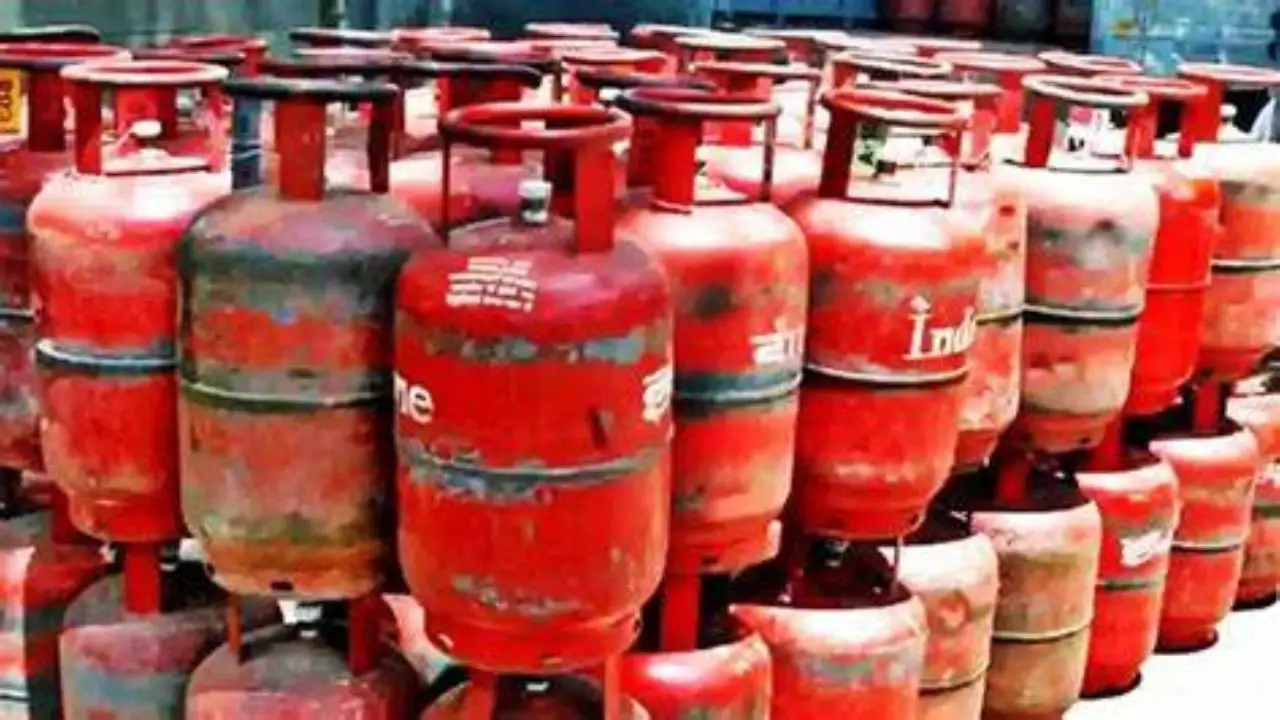
LPG cylinders (Social Media)
Business News: The escalating conflict between Iran and Israel in West Asia has emerged as a serious challenge to India's energy security. Among the most immediate and direct impacts of this geopolitical tension is the potential disruption of domestic LPG supply. Currently, India imports around 66% of its LPG requirement, with Saudi Arabia accounting for nearly 95% of these imports. The UAE and Qatar are also significant suppliers. Any disruption in the supply chain across the Gulf region could lead to a direct crisis in Indian households.
Recently, the United States launched targeted airstrikes on three major Iranian nuclear facilities, further inflaming the already volatile situation in the Middle East. This region is often referred to as the heart of the world's energy network. A disruption here wouldn’t just affect LPG but could rattle the entire global oil trade. The American military action, therefore, carries implications that go far beyond diplomacy—it could disturb the global energy balance, with countries like India bearing the brunt due to their heavy dependence on imported fuel.
India’s reliance on LPG has significantly increased over the last decade, with usage doubling in this period. According to an Economic Times report, more than 330 million Indian households depend on LPG cylinders for cooking. In stark contrast, only 15 million households have access to piped natural gas (PNG). This leaves a vast population almost entirely reliant on LPG. Worryingly, India’s current LPG storage capacity is sufficient for just 16 days of consumption. Any supply disruption could severely affect millions of families almost immediately.
While India has made significant strides in achieving a level of self-sufficiency in petrol and diesel—sometimes even exporting them—the situation with LPG is very different. India remains heavily dependent on LPG imports. In case of a disruption in petrol or diesel supply, the government has the option to halt exports to safeguard domestic needs. However, this strategy doesn't apply to LPG. Additionally, public distribution of kerosene has been nearly phased out, and PNG infrastructure remains limited. This leaves electric cooking as the only alternative—which is not feasible for every household, especially in rural or underdeveloped areas.
If the Middle Eastern supply route is compromised, India does have alternatives like the United States, Europe, Malaysia, and Africa. However, sourcing LPG from these regions presents two major challenges—higher shipping time and increased costs. These logistical and financial hurdles could push up domestic LPG prices, impacting millions of consumers. The central government's biggest challenge, in such a scenario, would be maintaining affordability while ensuring uninterrupted supply.
Despite the escalating geopolitical situation, Indian oil companies have so far refrained from large-scale advance procurement of LPG or crude oil. According to senior officials, the current assessment suggests that the risk of actual supply disruption remains low. One official noted, “Even if we place orders now, it would take a month for deliveries to arrive. Moreover, our storage capacity is limited.” Experts believe the current surge in global oil prices may be temporary and that the international market typically stabilizes quickly. At present, India has a 25-day reserve of crude oil, which helps ensure a stable petrol and diesel supply for the time being.
Geopolitical flashpoints like the Iran-Israel conflict serve as a harsh reminder of the vulnerability of energy-import-dependent nations like India. If the situation worsens, India must act swiftly—diversifying import sources, expanding LPG storage capacity, and accelerating the reach of PNG infrastructure. Because if the kitchen fire goes out, the consequences won't be limited to homes—they may spill over into streets and even the corridors of power.





Copyright © 2026 Top Indian News
